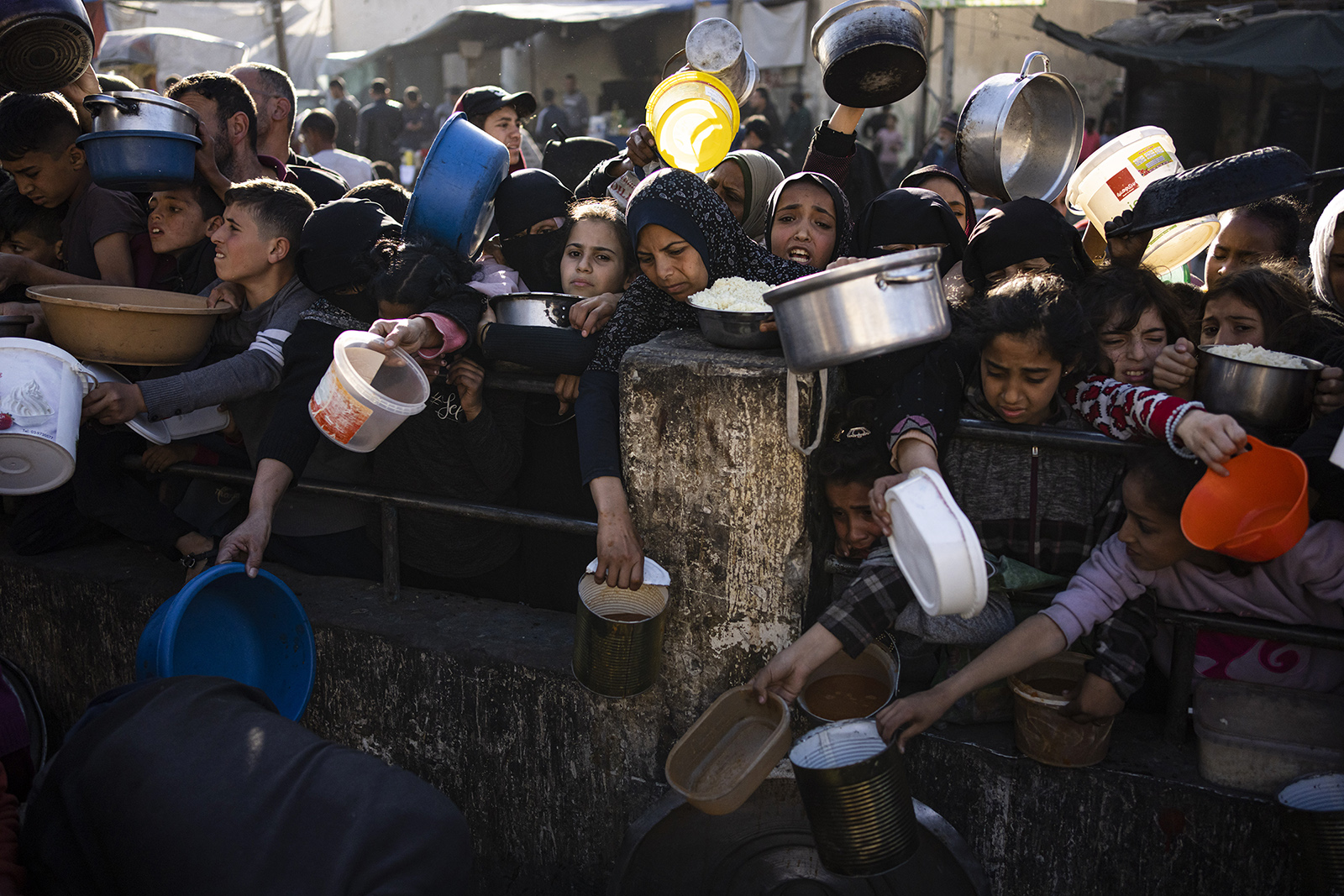(RNS) — A lifelong Baptist in the Middle East, I have found myself in agreement with many of the resolutions coming out of the Southern Baptist Convention meeting in Indianapolis this week. The resolution on the integrity of church leaders, the importance of the separation of church and state, and the call on church organizations to walk in the light and refrain from nondisclosure agreements all strike me as Christlike, and I and others in my corner of the Baptist world would happily sign on without any problem.
But two of the resolutions the Southern Baptists approved — one concerning the idea of just war and another titled “On Justice and Peace in the Aftermath of the October 7 attack on Israel” — are not only contradictory, but are disappointing and dismaying.
In the first resolution, the drafters justify the necessity of war for defensive reasons, correctly calling for “discrimination between combatants and civilians,” so that “civilians may not be deliberately targeted for attack.” In addition, “war must be fought with proper proportionality and the scale of death and destruction must be proportional to the scale of peace and justice at stake in the conflict” and “military personnel should adhere to the principle of military necessity.”
Given everything we have seen in the last eight months in Gaza and the West Bank, this resolution debunks any attempt at calling Israel’s military action just. The Israeli government’s actions have resulted in the starvation of an entire population as well as deliberate attacks on schools, humanitarian workers, ambulances and journalists. These are clearly not in sync with the above-mentioned conditions for just war.
More astounding in light of the just war resolution is the second resolution, whose drafters appear to have taken a chapter from the Israeli military playbook and applied it without seeking the counsel of fellow Christians or even fellow Baptists in the Middle East. The resolution fails in what it says but more in what it fails to say. It ignores the larger context of the conflict, which has seen 75 years of refugee status without the right of return, 57 years of occupation and 17 years of an illegal siege of Gaza. It didn’t just start on Oct. 7, as the resolution seems to want us to think.
Since Oct. 7, more than 5,000 Palestinians, including Christian Palestinians, have been detained by Israel without charge or trial, yet Southern Baptists focused solely on the Israeli hostages. The Israelis, meanwhile, have engaged in civilian hostage taking, administrative detention and indiscriminate destruction of homes, businesses, universities, hospitals and houses of worship. The Israeli offensive action has gone far beyond its initial defensive justification, killing thousands of innocent Palestinians and displacing hundreds of thousands of others.

Palestinians line up for a free meal in Rafah, Gaza Strip, on March 12, 2024. (AP Photo/Fatima Shbair)
This suffering, all publicly available information, did not earn a single word of recognition from Southern Baptists, not even the attacks on Gaza’s Christians, which have resulted in the loss of 3% of their already tiny population. The Baptist church in Gaza, established by Southern Baptist missionaries, has been destroyed by Israeli missiles. Palestinian Christians who have taken refuge in churches have been left to die without the ability to get medical treatment. At the very least, the Southern Baptists in Indianapolis could have offered words of compassion and solidarity.
But more disturbing than what was ignored are the Oct. 7 resolution’s claims about the rise of antisemitism — much of it, of course properly antiwar-ism, anti-Israelism and anti-occupation-ism. It failed to mention the increase in hate speech and hateful crimes against Palestinians, Arabs and Muslims. Palestinian and pro-Palestinians have been bullied and fired from their jobs for expressing support for justice and a cease-fire, both in the Middle East and in the United States, where three Palestinian students, graduates of the Friends Quaker school in Ramallah, were shot at because they wore the Palestinian traditional kaffiyeh.
The Southern Baptists have apparently swallowed the pro-Israeli narrative that protests at American universities were pro-Hamas, not anti-war. While some instigators made rare pro-Hamas comments, the protests were pro-peace, and pro-cease-fire. There is nothing wrong with supporting the rights of Palestinians to self-determination.
Most Christians in the Middle East ache with the pain of every death and destruction of any of our neighbors, whether Israeli or Palestinian. We hoped that, of all people, Christians in the United States would understand this pain. We hoped that our fellow Christians would follow the Prophet Amos’ call for “justice to roll on like a river” and Micah’s call to all of us to “love mercy.”
Instead, our fellow Baptists’ words have poured salt on a deep wound. Showing compassion to Israelis killed and taken hostage on Oct. 7 is correct and biblical, but so is the need to show compassion to Palestinians who have suffered and continue to suffer. This one-sided resolution fails on all the tests of biblical principles and must be revisited.
(Daoud Kuttab, an award-winning Palestinian journalist, is a member of the Amman Baptist Church and publisher of Milhilard.org, a news site dedicated to the Christian community in Jordan and the Palestinian territories. The views expressed in this commentary do not necessarily reflect those of Religion News Service.)






 Arabic
Arabic Chinese (Simplified)
Chinese (Simplified) Dutch
Dutch English
English French
French German
German Italian
Italian Portuguese
Portuguese Russian
Russian Spanish
Spanish